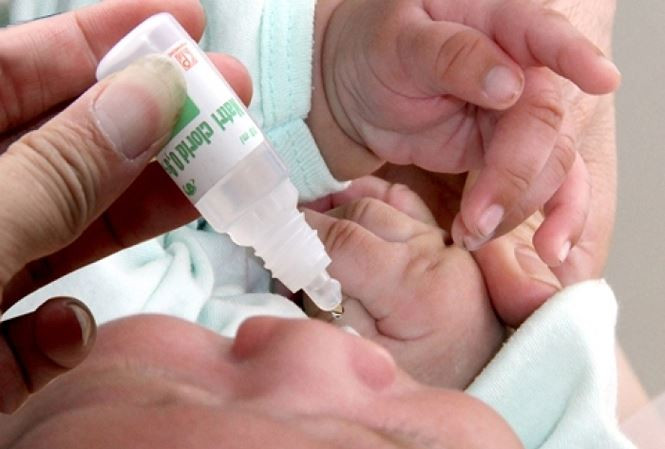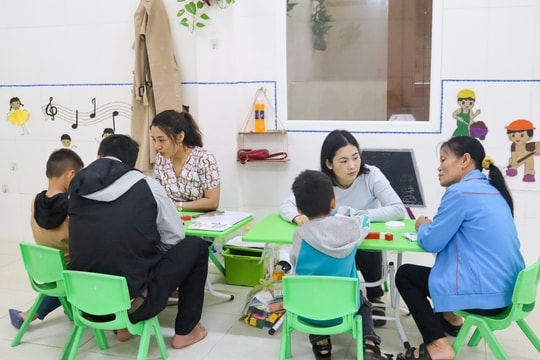How to take care of newborn babies with respiratory infections on cold days
The upper respiratory tract includes the nose, pharynx, throat, sinuses, and larynx, which are the first organs in the respiratory tract exposed to cold air, leading to inflammation of the upper respiratory tract. Initially, it is a cold, then it can be nasopharyngitis, pharyngitis, adenoiditis, tonsillitis, laryngitis, and sinusitis.
- Symptom
- In infants, symptoms of upper respiratory tract infection are mainly mild fever, cough, runny or non-runny nose, and wheezing.
- Treatment principles
Drug treatment:As directed by your doctor
Non-drug treatment
- - Clean nose, clear airway for children.
- - Adequate nutrition for babies to breastfeed adequately, increasing resistance
- - Create a clean, fresh living environment…
- - Take care of:Children have a lot of runny nose, which can be thick and sticky, leading to nasal congestion (due to increased secretions in the upper respiratory tract).

Be careful with saline solution and 'illegal' hydrogen peroxide
Authorities discovered a number of establishments selling 0.9% NaCl solution and hydrogen peroxide without a product registration license.
- Clear your baby's nose by using a soft, dry cloth (soft tissue is best) to avoid causing too much irritation to the nose, leading to a sore or red nose due to wiping too many times.
- Use 9‰ saline solution to drop into each nostril of the child to thin the nasal discharge, then remove the nasal discharge with a nasal aspirator, use a clean, dry cotton swab to pick the nose again.
- Clear your baby's nose before feeding or nursing if the discharge is thick and sticky to avoid vomiting.
Attention:Mothers should avoid using their mouths to suck out their children's noses because adults' mouths contain many bacteria that can easily be transmitted to children.
- Avoid overusing saline to suction the nose too much because it will cause atrophy of the baby's nasal mucosa.
- Avoid giving garlic juice to children because garlic is spicy and can easily burn children's mucous membranes.
- Place the baby with the head elevated or hold the baby in an upright position.
- Keep your baby warm if it is winter (acceptable room temperature is > 25)oC).
Pay special attention during child care if your child has one of the following symptoms, notify your doctor or take your child to a medical facility for immediate examination:
- - Unable to drink or breastfeed.
- - The disease gets worse, the child has difficulty breathing, breathes faster (over 50 times/1 minute), chest retraction... are signs of pneumonia, one of the dangerous complications of upper respiratory tract infection.
- - Children have high fever continuously for 3-5 days

Cold weather, mothers are advised of 4 'golden' positions to keep children warm
According to Associate Professor, Dr. Nguyen Tien Dung, pediatrician (Department of Pediatrics, Bach Mai Hospital), after each cold spell, the number of children hospitalized increases by 30-40% compared to normal days with common respiratory infections such as upper respiratory tract infections, bronchitis, and pneumonia. "It is not true that locking children in the house and "stuffing" them with lots of warm clothes will help them avoid illness."
- How to prevent disease
- For upper respiratory tract infections, prevention is the top priority, because this is a contagious disease, so limit children's direct contact with sick people, avoid factors that are harmful to the respiratory tract such as: dust, heat, hot air, toxic gases...
- Keep clean and store breast milk to avoid infection.
- Avoid letting children spend long periods outdoors, especially when the weather changes.
- Keeping your body warm when traveling and your neck warm when sleeping in winter are simple measures but help us prevent diseases very effectively.
- Ensure adequate nutrition, maintain a well-ventilated living environment, avoid damp and crowded places.

6 body parts that must be kept absolutely warm in the cold
(Baonghean.vn) - The weather is getting colder every day. We need to pay special attention to keeping our bodies warm to maintain our health. In keeping our bodies warm, we cannot ignore keeping the 6 most important parts warm:



